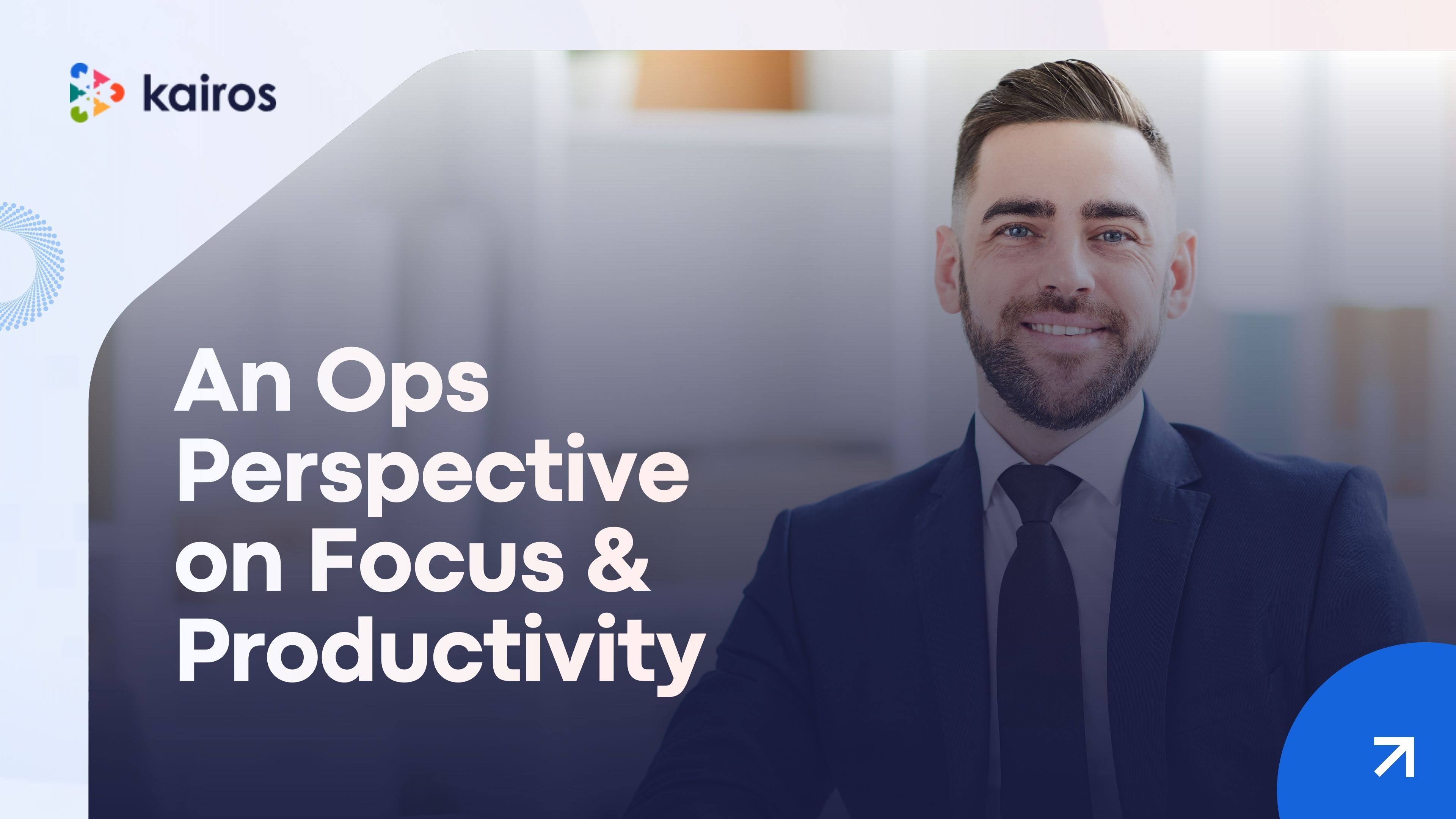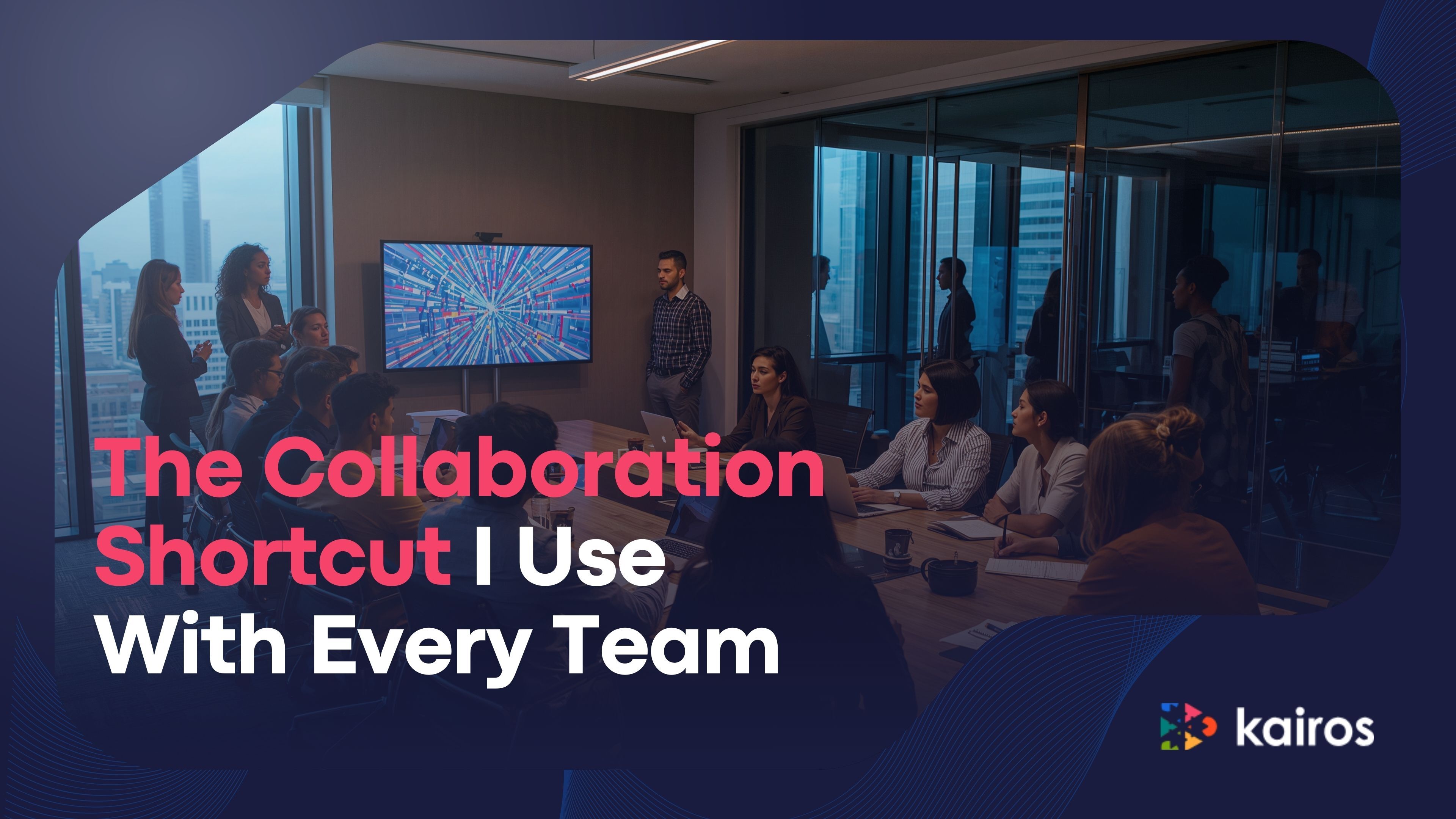Navigating the Meeting Software Market: Insights for the Savvy Executive
Your Organization is Experiencing Meeting Overload – Can Software Help?
Today’s demands to be more productive, collaborative, and inclusive are unrelenting. They are also driving most organizations into a state of meeting overload. Suppose most employees at your organization are experiencing a crowded calendar and are stressed about finding time to get their work done. If that’s the case, it is safe to say your culture is experiencing meeting overload. And while there are many ways to try to solve the problem, research shows the best place to start is to examine which problems are best and most quickly addressed and can apply to different groups or subsets of employees.
What’s the Best Way to Evaluate My Options?
Start With the Software You Use Every Day
Meeting Management Software is a specialized sub-set of Collaboration and Productivity Software[1]. These solutions propose to use dedicated software to help identify and solve meeting problems. At the same time, the acknowledged platform leader in the general meeting efficiency market is Microsoft 365. Microsoft’s workflows address the most common and generic needs related to improving the coordinating and scheduling of meetings, creating meeting agendas, recording meeting minutes, providing consensus tools to facilitate decision-making, outlining action items, and creating tasks based on meeting outcomes.
That said, Microsoft’s products are not packaged in a way that makes it easy for organizations to overcome their individual team or companywide cultural meeting issues. To understand and implement a solution that builds on the default Microsoft 365 options, your organization would need to create a team to think through and figure out how to better use Outlook, Teams, Tasks, Outlook Calendar Analytics, Forms, etc., in a way that addresses the underlying issues that create meeting overwhelm.
How to Find Meeting Software That Can Help
If you are considering a point solution that implements a workflow tool to address common problems experienced with meetings, G2’s software marketplace is a good place to begin. G2 tracks 136 different offerings, some broadly applicable and comprehensive, and others designed for a specific type of meeting or a specific part of meeting workflows. The site also provides helpful filters to see which solutions might be the best fit based on organization size and overall market leadership.
Comprehensive tools like Fellow.app and Decisions have features for team meetings, 1-on-1s, and remote meetings. They also include tools to help teams prepare for and engage attendees during meetings and follow up after.
Newer tools like Read.ai and Avoma leverage AI as a meeting assistant that automates the routine aspects of meetings like no-show reminders, automatic recording, transcription, playback, and highlights to make meetings more efficient.
While these tools have appealing aspects and specializations, it is crucial to recognize that your proposal to purchase a point solution must survive the CFO’s new software gauntlets. Those that do usually can demonstrate a distinct and compelling ROI. But that ROI heavily depends upon individual adoption and daily usage – all of which come with heavy change management requirements.
Software on Its Own Rarely Creates Cultural Change
If you have been in management for any time, we’re pretty sure you’re familiar with the following challenge. Someone in your organization has chosen to roll out a new piece of software at the team or company-wide level. The software is exciting. It has lots of promise, but the software didn’t achieve the projected ROI. In fact, it ended up requiring hard work and dedication to attempt to change people’s work habits – and ended up causing more challenges that it proposed to solve. And even if it works, you end up requiring parts of, or even all of your staff to use new software and shift from their familiar Microsoft collaboration platform and tools to the new single-point solution to try to solve the problem.
In addition, an organization rarely has a senior leader charged with managing time and talent in meetings – a Chief Meeting Officer. Without a champion in the C-Suite or on the senior leadership team, the deployment of dedicated meeting software is often done on a departmental basis as a pilot. This approach can work if the teams testing the solution have been trained to understand and apply the science behind what makes a good meeting and brings about company-wide culture change. Dr. Rogelberg’s research[2] confirms that only 25% of leaders have received meaningful training that could ensure a pilot’s success.
Finally, software can do more harm than good if it doesn’t integrate seamless evaluations and assessments to guide the approach to optimizing meeting culture across the organization. Research has shown that the person most likely to rate a meeting highly - is the meeting leader![3] Research has also shown that without feedback loops and reminders in the form of prompts and coaching across all meeting leaders, meeting software becomes a force multiplier for more unproductive meetings that create dissatisfaction and even employee churn.
Reducing Meeting Overload Across Your Culture Is Possible, but It Takes Focus and Time
Transforming meeting culture is no small undertaking. It is not something software on its own is designed to do. Transforming meeting culture requires understanding the science behind great meetings and how to create a mindset of stewardship of time and talent in all meeting leaders.
The good news is that you likely have core meeting functionality provided by Microsoft 365 – Outlook and Teams for calendar and meeting management. What is lacking is training, assessment, and analytics that help meeting leaders understand where to focus, what to change, and coaching on how to apply those changes across your organization. If you are willing to take the role of Chief Meeting Officer at your organization, change is possible with the right amount of dedication and solution partner.
Bringing in a keynote speaker to rally meeting leaders and/or holding an organization-wide book club to discuss the Surprising Science of Meetings are great ways to kick off the project. And then, to help your teams move forward, providing training and coaching to use the various features in Office 365 to create an optimal meeting workflow will keep your project heading in the right direction.
The foundations of this journey and the success of its outcomes will come as the result of using seamless technology to gather data, take in employee feedback, and test new approaches to understand what works best for your teams and organization. Keep in mind that reshaping your meeting culture won't happen overnight – it is a gradual process that will require time and persistent effort – the results of which will be well worth your employees’ and company’s time, energy, and investment.
Kairos Is Here When You Are Ready for Help
Kairos is an alternative to consider if you are ready to partner with a company that’s backed by industry-leading research, technology, and professionals to help you take care of the heavy lifting. Our comprehensive evaluations and assessments delve into your existing meeting practices, pinpointing areas for improvement. Our expertly crafted training (designed by Dr. Steven Rogelberg, the world’s leading expert on fixing meetings), provides coaching and trains your leaders to address common meeting challenges and build toward comprehensive meeting culture improvements. Our reminder prompts and tools are integrated into Microsoft core products and workflows to ensure positive changes enhance your employees’ meeting satisfaction and everyday experience – without the change management required to implement new, unfamiliar software tools.
REFERENCES
[1] G2 Best Meeting Management Software:
[2] Rogelberg, S.G. (2019). The Surprising Science of Meetings: How You Can Lead Your Team to Peak Performance. Oxford University Press.
[3] Rogelberg, S.G. (2019). The Surprising Science of Meetings: How You Can Lead Your Team to Peak Performance.
We're Here to Help. We'll Make it Easy.
We understand that improving meetings can be difficult, which is why we exist. Talk to one of our Kairos specialists today to get started on the path to happier employees who value the time they spend in meetings.


